Breaking Boundaries
In a world that's constantly evolving, the dynamics of the job market are shifting at an unprecedented pace. Gone are the days when a single specialized skill set could guarantee a stable, lifelong career. Instead, we find ourselves in an era where the ability to adapt, learn, and transcend traditional boundaries has become the key to thriving in the professional landscape.
Over the past few decades, the global job market has undergone a dramatic transformation. Technological advancements, coupled with the rise of globalization, have reshaped the way we work and the skills we value. Industries that once seemed invincible have crumbled, while new sectors have emerged, demanding a fresh set of competencies. In this volatile environment, where change is the only constant, professionals are left grappling with the question: how can one navigate this unpredictable terrain and secure a successful future?
The answer lies in embracing a new paradigm – one that recognizes the power of versatility and the importance of a diverse skill set. While specialization has long been the hallmark of professional success, the current landscape calls for a more holistic approach. It's no longer enough to be an expert in a single domain; to truly excel, one must possess the agility to traverse multiple disciplines, connecting dots and finding innovative solutions to complex problems.
Enter the generalist – the unsung hero of the modern workforce. Often overlooked in favor of their specialist counterparts, generalists bring a unique blend of skills, experiences, and perspectives to the table. They are the jack-of-all-trades, the renaissance men and women who refuse to be confined by the boundaries of a single field. With their ability to think critically, communicate effectively, and adapt to new challenges, generalists are poised to become the driving force behind the future of work.
Jack of all trades is a master of none, but oftentimes better than a master of one.
However, this is not to say that specialization has lost its value. On the contrary, the depth of knowledge and expertise that specialists bring to their respective fields remains invaluable. The true potential lies in finding a balance between these two approaches – a sweet spot where the breadth of a generalist's skill set complements the depth of a specialist's knowledge.
In the following sections, I will dig deeper into the world of generalists and specialists, exploring their strengths, limitations, and the ways in which they can work together to create a more dynamic and resilient workforce. We will examine the rise of polymaths, the impact of artificial intelligence, and the imperative of adaptability in an ever-changing professional landscape. By the end of this journey, we will have a clearer understanding of how embracing the transformative power of generalists, while valuing the expertise of specialists, can pave the way for a brighter, more innovative future.

Understanding Specialization
In the vast loom of professional fields, specialization emerges as a defining thread, weaving together the intricate patterns of expertise and mastery. It is the cornerstone upon which many successful careers are built, a testament to the power of focused knowledge and honed skills. Specialization, at its core, represents a deep dive into a specific area of study or practice, a commitment to becoming an expert in a particular domain.
Across various industries, the impact of specialization is evident in the achievements of those who have dedicated themselves to mastering their craft. In the realm of medicine, for instance, the specialized knowledge of a neurosurgeon enables them to navigate the complexities of the human brain with precision and finesse. Their years of rigorous training and unwavering focus on this specific area of expertise allow them to perform life-altering procedures and push the boundaries of medical science.
Similarly, in the world of technology, software engineers who specialize in a particular programming language or framework become sought-after assets, capable of developing innovative solutions and driving progress within their chosen niche. Their deep understanding of the intricacies and nuances of their specialization sets them apart, making them invaluable contributors to the ever-evolving landscape of technology. For instance, specialist managers are known for their focus on specific areas within an organization, honing their expertise to navigate particular challenges with remarkable proficiency[1].
However, while specialization undeniably brings immense value and expertise to specific domains, it is not without its limitations. In an increasingly interconnected and rapidly changing world, specialists may find themselves confronted with challenges that extend beyond the boundaries of their narrow focus. When faced with diverse work settings that demand adaptability and a broader skill set, the highly specialized individual may struggle to navigate uncharted territories.
The limitations of specialization become particularly apparent in scenarios that require cross-functional collaboration and interdisciplinary problem-solving. In such contexts, the specialist's deep but narrow knowledge may prove insufficient, as they lack the versatility to effectively engage with and contribute to areas outside their immediate expertise. This can lead to communication barriers, missed opportunities for innovation, and a reduced ability to adapt to the ever-shifting demands of the modern workplace.
The Generalist Approach
In a world where specialization has long been the norm, the concept of generalists is emerging as a powerful force for adaptability and innovation. Generalists are individuals who possess a wide range of skills and knowledge across multiple domains, enabling them to navigate complex challenges and contribute to diverse projects. Unlike specialists who focus on a single area of expertise, generalists embrace a holistic approach to problem-solving, drawing upon their varied experiences and insights to create unique solutions.
The roles of generalists in the modern workplace are multifaceted and essential. They are the Swiss Army knives of the professional world, capable of executing a variety of tasks with ease and efficiency. Whether it's stepping in to fill a gap in a project team, providing a fresh perspective on a long-standing problem, or serving as a bridge between different departments, generalists bring a level of flexibility and adaptability that is invaluable in today's fast-paced and ever-changing business landscape. Today's workplaces value flexibility and adaptability, a paradigm that suits the multi-faceted nature of generalists. They are equipped to work in environments that prioritize employee well-being, with a trend towards online collaborative spaces rather than traditional office settings[2][3].
One of the key strengths of generalists lies in their ability to foster collaboration and synergy across different fields. With their broad knowledge base and diverse skill set, generalists can effectively communicate and collaborate with specialists from various disciplines, facilitating the exchange of ideas and the creation of innovative solutions. They act as translators, helping to break down silos and promote cross-functional teamwork, ultimately leading to more cohesive and successful projects.
Generalists are also known for their ability to see the big picture and connect seemingly unrelated dots. They can identify patterns and trends that may go unnoticed by those with a narrower focus, enabling them to anticipate challenges and opportunities before they arise. This strategic thinking and holistic perspective make generalists invaluable assets in any organization, as they can help guide decision-making and shape long-term goals.
In a world where change is the only constant, the adaptability of generalists is a key advantage. As industries evolve and new technologies emerge, generalists are well-equipped to navigate these shifts and quickly acquire new skills as needed. They are lifelong learners, always eager to expand their knowledge and take on new challenges. This adaptability not only benefits the individual generalist but also the organizations they work for, as it enables them to remain agile and responsive in the face of change.
While specialization will always have its place in the professional world, the rise of generalists is a testament to the growing recognition of the value of versatility and adaptability. As the boundaries between industries continue to blur and the pace of change accelerates, the ability to think and work across disciplines will become increasingly essential. Generalists, with their wide-ranging skills and holistic approach, are poised to play a critical role in shaping the future of work and driving innovation in the years to come.

Rise of Polymaths
In an era where specialization has long been the norm, a new breed of professionals is emerging: the polymaths. These multi-talented individuals are redefining the landscape of today's workforce, bringing with them a unique blend of skills, knowledge, and creativity that transcends traditional boundaries. As the world becomes increasingly complex and interconnected, the importance of polymaths cannot be overstated.
Polymaths are the renaissance men and women of our time. They possess a wide range of expertise across multiple disciplines, allowing them to approach problems from diverse perspectives. Unlike specialists who focus on a single area, polymaths have a holistic understanding of various fields, enabling them to connect the dots in ways that others might miss. This interdisciplinary knowledge is precisely what makes polymaths so valuable in today's workforce.
Innovation is the lifeblood of any thriving organization, and polymaths are the catalysts that drive it forward. By drawing upon their diverse skill sets, polymaths are able to think outside the box and come up with creative solutions to complex problems. They are not confined by the limitations of a single discipline; instead, they embrace the cross-pollination of ideas, leading to groundbreaking innovations that push the boundaries of what is possible. The merits of T-shaped talent are gaining recognition within the job market, hinting at a future that favors those with the capacity to adapt their diverse knowledge to various scenarios, much like polymaths — generalists who have deepened certain areas of their expertise[4].
One need only look at some of the most influential figures in history to see the impact of polymaths. Leonardo da Vinci, a true polymath, excelled as an artist, inventor, engineer, and scientist. His contributions, from the Mona Lisa to his flying machine designs, have left an indelible mark on human civilization. In more recent times, entrepreneurs like Elon Musk and Steve Jobs have demonstrated the power of polymathic thinking, revolutionizing industries as diverse as space travel, electric vehicles, and personal computing.
The unique impact of polymaths in professional environments cannot be understated. They bring a fresh perspective to problem-solving, often seeing connections and opportunities that others might overlook. In a world where innovation is the key to staying ahead of the curve, having polymaths on your team can be a game-changer. Their ability to think creatively, adapt to new challenges, and bridge the gaps between different fields makes them invaluable assets to any organization. The merits of T-shaped talent are gaining recognition within the job market, hinting at a future that favors those with the capacity to adapt their diverse knowledge to various scenarios, much like polymaths — generalists who have deepened certain areas of their expertise[4:1].
Consider the case of Nathan Myhrvold, a former Chief Technology Officer at Microsoft. With a background in physics, mathematics, and computer science, Myhrvold embodies the polymath spirit. After leaving Microsoft, he founded Intellectual Ventures, a company that focuses on creating and commercializing inventions across various industries. Myhrvold's interdisciplinary approach has led to breakthroughs in fields as diverse as nuclear energy, biotechnology, and metamaterials.
As the world becomes more complex and the challenges we face more multifaceted, the rise of polymaths is not just a trend but a necessity. Organizations that embrace and nurture polymathic talent will be better equipped to navigate the uncertainties of the future and stay ahead of the competition. By fostering a culture that values interdisciplinary thinking and encourages the cross-pollination of ideas, companies can unlock the full potential of their workforce and drive innovation to new heights.
The rise of polymaths is a testament to the power of interdisciplinary knowledge and the importance of thinking beyond the confines of a single specialization. As we move forward into an increasingly complex and interconnected world, it is the polymaths who will lead the way, inspiring us with their creativity, adaptability, and boundless curiosity. The future belongs to those who dare to break the mold and embrace the full spectrum of human knowledge and potential.
The Top Articles of the Week
100% Humanly Curated Collection of Curious Content
The Creative Edge

A **generalist species** is able to thrive in a wide variety of environmental conditions and can make use of a variety of different resources. A **specialist species** can thrive only in a narrow range of environmental conditions.
(Wikipedia, Generalist and Specialized Species)
In a world that often values specialization and deep expertise, it may seem counterintuitive that generalists—those who dabble in many areas rather than focusing on just one—are the true drivers of innovation. But a closer look reveals that it is precisely the cross-disciplinary nature of generalist thinking that sparks the most revolutionary ideas and breakthroughs.
Generalists possess a unique superpower: the ability to connect the dots between seemingly disparate fields and concepts. Armed with a diverse knowledge base spanning multiple domains, they can see patterns and parallels that specialists, immersed in the depths of their own area of expertise, often miss. This bird's-eye view allows generalists to transplant ideas from one field to another, leading to novel solutions and fresh perspectives.
Consider the example of Steve Jobs, a quintessential generalist. His wide-ranging interests in technology, design, Eastern spirituality, and the humanities enabled him to envision products that seamlessly blended form and function, art and engineering. Jobs' iconoclastic approach, born out of his generalist mindset, revolutionized entire industries from personal computing to mobile phones to digital animation.
The power of generalist thinking extends far beyond the realm of technology. In the world of architecture, for instance, the late Zaha Hadid drew inspiration from a dazzling array of sources—from Islamic art to Russian Suprematism to the fluid dynamics of water—to create buildings that pushed the boundaries of what was thought possible. Her sinuous, gravity-defying structures stand as testament to the creative potency of cross-pollinating ideas across disciplines.
Even in the hallowed halls of academia, where specialization has long been the norm, the value of generalist thinking is increasingly recognized. Take the field of bioengineering, which has seen remarkable advances thanks to the collaborative efforts of biologists, physicists, chemists, computer scientists, and engineers. By bringing together experts from diverse backgrounds, bioengineering has spawned innovations ranging from 3D-printed organs to brain-computer interfaces that promise to transform medicine as we know it.
Of course, this is not to suggest that specialization has no place in driving innovation. Deep expertise in a particular field is often essential for pushing the boundaries of what is known and what is possible within that domain. But without the cross-fertilization of ideas that generalists bring to the table, the pace of innovation would be far slower and its scope far narrower. It is crucial that all professionals, whether specialist or generalist, embrace adaptability. As labor market trends evolve, individuals must be cognizant of where the opportunities lie and be ready to pivot according to demand[1].
As we navigate an increasingly complex and rapidly changing world, the value of generalist thinking will only continue to grow. The challenges we face—from climate change to public health crises to economic disruption—are multifaceted and interconnected, demanding solutions that draw upon insights from across the spectrum of human knowledge. In this context, the ability to think outside the box, to connect the dots, and to bridge the gaps between disciplines will be the key to unlocking the creativity and innovation we need to build a better future.

Impact of AI
The relentless march of artificial intelligence is transforming the very nature of work, with rippling effects across industries and job functions. As AI systems grow more sophisticated and capable, they are increasingly automating tasks that were once the exclusive domain of human specialists. From legal research to medical diagnosis to financial analysis, narrow AI is becoming adept at performing specialized work with a level of accuracy and efficiency that rivals or exceeds human experts.
The surge of AI and automation has birthed new specialist roles within traditionally non-technical sectors, underscoring the need for specific AI competencies that are shaping the existing job market[2]. In this AI-driven landscape, the value of human specialization is being called into question. If a machine can accomplish specialized tasks faster, cheaper, and more accurately than a person, what role is left for the human specialist? Some argue that AI will lead to widespread job displacement as entire occupations are automated away. Others contend that AI will augment human capabilities, freeing specialists to focus on higher-level work that requires creativity, critical thinking, and emotional intelligence.
When we consider IQ tests, the bulk of the test is comprised of General Intelligence. As we look upon the Artificial Narrow Intelligence we’ve managed to elevate to, the pinnacle of AI as we teeter the moment of Artificial General Intelligence; the Holy Grail of intelligences. The bulk of this intelligence relies upon a Generative Pre-Trained Transformers that are driven with means of prompts and general inquisition. And with this AGI, as folks refer to it as, comes a world of efficiency we’ve never seen. The mere definition of a specialist will change in the transfer of a complete body of knowledge to everything all at once in a literal blink of an eye. This means the specialists, like the auto-workers in the 80s, will find themselves facing a swift expunging of excess specialty.
Amidst this uncertainty, the generalist is emerging as a key player in the age of AI. With their versatile skill sets and adaptable mindsets, generalists are well-equipped to navigate the shifting tides of an AI-driven economy. Rather than being made obsolete by automation, generalists can leverage AI tools to enhance their own capabilities and tackle a wider range of challenges.
For example, a generalist marketer might use AI-powered analytics to derive customer insights, craft personalized content, and optimize campaign performance. A generalist project manager could harness AI scheduling and budgeting tools to streamline workflows and make data-driven decisions. By combining their broad knowledge base with the specialized capabilities of AI, generalists can become "super-generalists"—highly adaptable professionals who can add value across domains and industries.
The other thing is that with the rise of AI, it is fueling a demand for professionals who can bridge the gap between technology and human context. Generalists who can translate AI insights into actionable business strategies, communicate the implications of AI to non-technical stakeholders, and ensure that AI systems are designed and deployed in an ethical and responsible manner will be invaluable in the years to come.
In sum, while AI may diminish the value of narrow human specialization, it is amplifying the importance of generalist skills and mindsets. As the boundaries between industries blur and the pace of change accelerates, the ability to learn quickly, think creatively, and adapt nimbly will be essential for thriving in an AI-shaped world. The generalist, armed with a diverse toolkit and an insatiable curiosity, is poised to not just survive but thrive in this new era of work.
The Imperative of Adaptability
In the face of an ever-changing professional landscape, adaptability emerges as the cornerstone of career survival and growth. The winds of change blow relentlessly through the corridors of industries, reshaping job roles and skill requirements with each passing day. It is within this tumultuous environment that professionals must learn to bend like bamboo, adapting to the shifting demands of their fields, or risk being snapped by the forces of obsolescence.
Picture a specialist, a master of their craft, honed by years of focused training and experience. Their expertise, once a badge of honor, now hangs in the balance as the ground shifts beneath their feet. The very skills that propelled them to success yesterday may become the anchors that drag them down tomorrow. To remain relevant, specialists must learn to dance with change, embracing the imperative of adaptability.
Adaptability, in this context, is not merely a buzzword; it is a lifeline. It is the ability to recognize the changing tides of the job market and to navigate them with grace and determination. For specialists, this means venturing beyond the confines of their expertise, exploring adjacent skills that complement and enhance their core competencies. It is a journey of continuous learning, of stepping outside comfort zones, and of embracing the unfamiliar.
Imagine a software engineer, a master of a specific programming language, suddenly confronted with the rise of a new, more efficient coding paradigm. Rather than resisting the change, the adaptable engineer dives headfirst into learning the new language, recognizing that their value lies not just in their current skills, but in their ability to acquire new ones. They attend workshops, enroll in online courses, and seek mentorship from those who have already crossed the bridge. In doing so, they not only safeguard their own career but also position themselves as valuable assets to their organization.
The imperative of adaptability extends beyond individual professionals; it permeates the very fabric of organizations. Companies that foster a culture of continuous learning, that encourage their employees to explore new skills and cross-pollinate ideas, are the ones that thrive in the face of change. They recognize that the collective adaptability of their workforce is their greatest asset, a bulwark against the unpredictable tides of the market. Nonetheless, even specialists require a growth mindset to thrive. With AI's ascent, their concentrated knowledge must be coupled with the adaptability generalists typically exhibit[1][2].
In a world where change is the only constant, adaptability is no longer a choice; it is a necessity. It is the key that unlocks the doors to career longevity, personal growth, and organizational success. For specialists, it is the bridge that connects their deep expertise to the broader spectrum of the evolving job market. It is the compass that guides them through the uncharted waters of an uncertain future, ensuring that they remain not just relevant, but indispensable.
So, to the specialists reading this, I issue a call to action: Embrace adaptability as your north star. Let it guide you through the turbulent seas of change, illuminating new paths and possibilities. Learn adjacent skills, explore new domains, and never stop growing. For it is in your ability to adapt that you will find the resilience to weather any storm and the power to shape your own destiny in an ever-changing world.
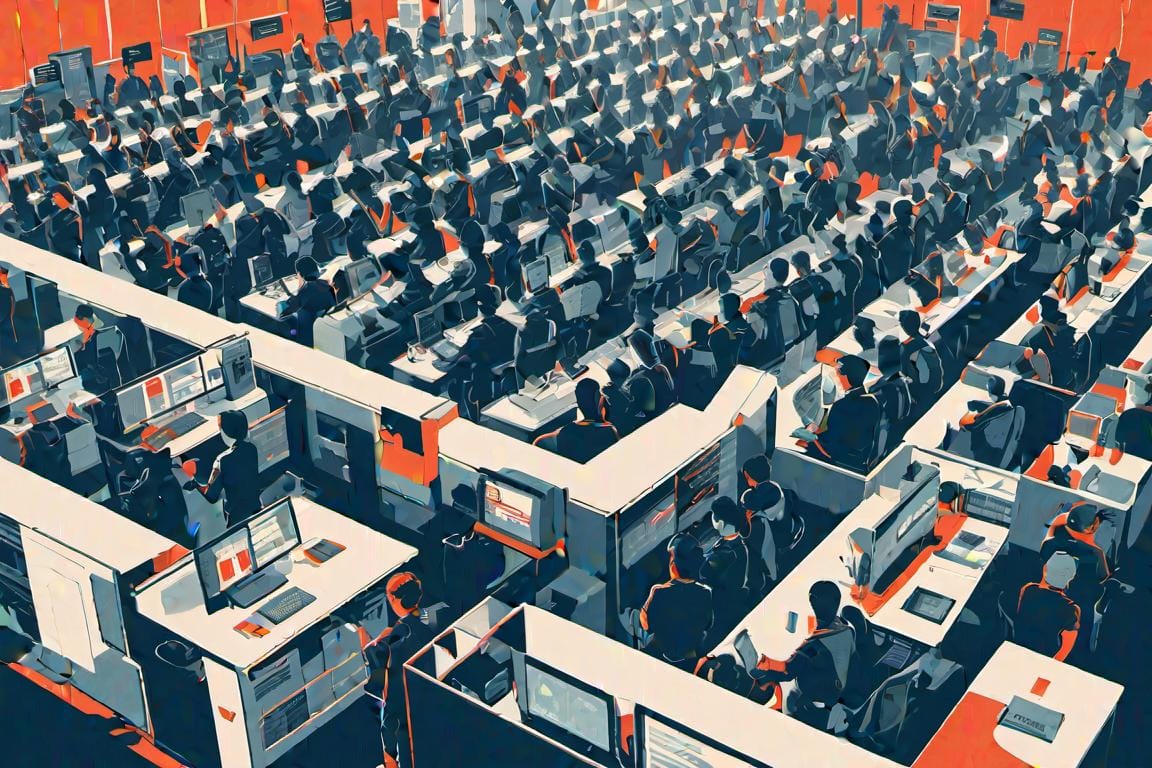
The Transformation of Work Roles
The line between specialists and generalists is blurring as a new breed of hybrid roles emerges, blending deep expertise with broad versatility. These multifaceted positions are transforming the landscape of work, requiring professionals to upskill and adapt to thrive in an ever-changing environment.
The intersecting skills of specialists and generalists are birthing hybrid roles, fulfilling industry demands for positions that blend pinpoint expertise with a nimble approach to various scenarios[3][4]. Such professionals are well-positioned to tackle emergent issues that require both depth and cross-functional knowledge[5].
The Rise of Hybrid Roles
Picture a software engineer who not only codes with precision but also possesses the business acumen to understand market trends and customer needs. Or imagine a marketing strategist equipped with data science skills, able to extract insights from vast troves of information to craft highly targeted campaigns. These are the hybrid roles that are increasingly in demand, combining specialist depth with generalist breadth.
Embracing new skills and perspectives is not just beneficial but necessary, as evidenced by a Vanderbilt-led study indicating that versatility across various domains—the hallmark of hybrid professionals—can lead to mastering multiple specialties, much like how generalist species thrive in nature[6].
Industry Examples of Hybridization
The benefits of hybridization are evident across various industries:
- In healthcare, physician-data scientists leverage their medical expertise and analytical prowess to develop predictive models for early disease detection and personalized treatment plans.
- In finance, quantitative analysts with strong communication skills bridge the gap between complex mathematical models and stakeholder understanding, enabling data-driven decision making.
- In the creative field, designer-developers seamlessly merge aesthetic sensibilities with technical proficiency to create immersive digital experiences that captivate audiences.
These examples illustrate how the fusion of specialist and generalist skills can drive innovation, efficiency, and impact in diverse domains. Professionals in all sectors can see these patterns. In the creative industries, for instance, there is a push for multifaceted roles blending artistic flair with technological savvy, in response to advancing digital platforms and changing audience preferences[7].
The Importance of Upskilling
To thrive in this era of hybridization, professionals must embrace a mindset of continuous learning and upskilling. The rapid pace of technological advancements and shifting market dynamics demand agility and adaptability. Specialists can expand their skill sets by acquiring knowledge in adjacent domains, while generalists can deepen their expertise in specific areas to enhance their value proposition. Upskilling can take various forms, from pursuing formal education and certifications to engaging in self-directed learning through online courses, workshops, and hands-on projects. The key is to identify the skills that complement one's core competencies and align with the evolving needs of the job market. A point to note, organizations play a crucial role in fostering a culture of learning and providing opportunities for professional development.
The dynamism of today’s employment scenario demands a commitment to upskilling, whether one's background is that of a specialist or a generalist. Jobs are becoming more fluid and connected with global trends like climate change, promoting a thrust towards greener, more sustainable practices across professions[8]. By investing in their workforce's upskilling efforts, companies can cultivate a pool of versatile talent equipped to tackle complex challenges and drive business growth. Professionals skilled in a range of areas will excel as lines between specialists and generalists blur. Adapting to the evolving landscape of work is an opportunity to leverage diverse skills for career success.
https://popl.co/blogs/all/thriving-in-the-modern-workplace ↩︎
https://emeritus.org/blog/career-generalist-vs-specialist/ ↩︎
https://www.chegg.com/homework-help/questions-and-answers/important-aware-labor-market-trends-multiple-choice-predict-every-job-lost-automation-futu-q135895606 ↩︎
https://www.forbes.com/sites/rachelwells/2023/10/23/the-future-of-work-key-emerging-workplace-trends-to-watch-for-2024/ ↩︎
https://www.saviom.com/blog/generalist-vs-specialist-resource/ ↩︎
https://news.vanderbilt.edu/2022/02/09/vanderbilt-led-researchers-show-that-generalist-species-are-jack-of-all-trades-and-masters-of-all/ ↩︎
https://www.forbes.com/sites/forbesbusinesscouncil/2021/09/15/looking-ahead-to-2022-emerging-trends-in-employment/ ↩︎
A Wise Investment of Your Time
List of YouTube videos that captured my undivided attention.
The New Workforce: Specialists, Generalists, and the Rise of Hybridity

In our exploration of the evolving dynamics between specialists and generalists within the modern professional landscape, it is imperative to underscore the synthesis of these roles and the rise of a new category of workers: the hybrid professionals. This fusion of specialist depth and generalist breadth epitomizes the trajectory of future work trends—a world where innovation and adaptability reign supreme.
A commitment to ongoing development, an enthusiastic engagement with a diverse array of expertise, and an appreciation for the richness of diverse thought are paramount in this context. We stand at the cusp of an age forever altered by artificial intelligence, where technology reshapes industry norms[1] and enriches the creative fertility of human endeavors[2][3]. The evolution of the workforce calls for professionals skilled not just in a solitary domain but in the art of blending disciplinary insights, marrying the specialist's precision with the generalist's comprehensive vision.
As we delve into the implications of this merger, the advantages of having a multi-faceted skill set become clear. Generalists and specialists preparing for a rapidly advancing technical future must recognize that mastery is not solely about depth or breadth, but rather about the ability to weave through ever-shifting domains with agility and foresight[4][2:1][5]. This dynamic capacity to adapt and integrate diverse competencies will define success in the workplaces of tomorrow, inviting us to endorse an adaptable mindset as the currency of professional progress.
In light of advancing technologies such as artificial general intelligence, the professional who thrives is the generalist refined with specialist expertise[1:1]. These are the strategists of innovation—the architects of knowledge who will pave the way for a scalable and sustainable future.
Embracing the Future of Work
As we conclude our insight-filled voyage through the dichotomous world of specialists and generalists, we harmonize the discourse with a powerful realization: The distinction between specialized and generalized roles is no longer a binary choice but an integrative challenge calling for a nimble and expansive approach.
Specialists retain their significance as they offer unparalleled depth of knowledge and expertise, anchoring themselves in the profound complexities of particular industries. Yet, the mercurial nature of the global economy increasingly demands from these individuals a broadened aptitude for cross-functional dexterity and lifelong learning.
To effectively meet these demands, professionals must cultivate a collection of soft and professional skills that are adaptable to a variety of work environments. As elucidated by AxxonJobs, skills such as problem-solving, effective communication, leadership, and innovation are increasingly valuable in a labor market that prioritizes versatility and resilience [6]. This necessity for adaptability only underscores the evolving role of generalists who embody such diverse capabilities within their professional toolkit.
Conversely, generalists are no quaint relics in a world that champions specialization; their adaptability, interdisciplinary working styles, and capacity to see the wider picture are indispensable in facilitating innovation and ensuring that diverse industries function cohesively. The rise of polymaths and the creative edge they manifest in problem-solving are testaments to the holistic approach's contribution to professional development[2:2].
The Fusion of Specialist Depth and Generalist Breadth
The metamorphosis of work roles into a paradigm that appreciates hybrid professionals—equipped with the versatility to adapt and the acumen to specialize—reflects our economy's complexities. Both individuals and corporations must foster conditions that support learning agility, galvanizing a culture that values the ever-essential blending of skills to surmount the challenges of a volatile world[7][8].
The ascendancy of AI does not mark the obsolescence of human roles but, instead, underscores the human potential for adaptation and innovation. While these intelligent systems provide unprecedented capabilities, they also delineate the generalist's realm to interpret, contextualize, and humanize technology's applications—steering progress through a nuanced and thoughtful lens[1:2]. Ergo, we herald a future shaped by a symbiotic relationship between the human intellect's versatility and the precision of specialized knowledge; a future characterizing success not by rigid adherence to a sole discipline but through the fluidity of interdisciplinary excellence. It is the alchemy of steadfast expertise and expansive adaptability that equips us for prosperity within the rapidly transforming fabric of work[9][5:1].
Ultimately, the mosaic of tomorrow's work is inclusive, embracing specialists, generalists, and the emerging hybrids in a dynamic ecosystem. By championing a spirit of continuous evolution and innovation, we can collaboratively forge the pathways towards a shared and thriving future. As technological frontiers expand and traditional occupational paradigms fade, we must reframe our conceptual frameworks, championing elastic adaptability and expansive learning. Embracing a global consciousness filled with AI-enabled potentialities, we lean into the kaleidoscopic possibilities offered by a workforce empowered by both generalist fluidity and specialist proficiency.
So, let us stride confidently toward the dawn of intelligent automation and multi-disciplinary integration, championing the generalist ethos while honing our specialized skills. For in this era of convergence, it is the professionals who blend adaptability with expertise who will chart the unfathomable potentials of human and artificial intelligence.
In sum, as we relinquish outmoded categories and embrace a more dynamic, synergistic future of work, we are not just witnesses but active participants in an evolution that cradles the collective gifts of generalists and specialists. Our role in this transformation is not that of passive observers but as pioneers, actively bridging the domains of our expertise with the broad palette of a generalist perspective. The resulting mosaic is one wherein adaptability, learning, and collaboration coalesce to form the bedrock of tomorrow's workforce. As we steadfastly navigate this brave new world where the predictable confines of the blue and white-collar jobs beckon for revision, our collective success hinges on an integrated view of work where generalists and specialists harmonize their strengths. Embracing the versatility of the generalist while harnessing the focused acumen of the specialist, we fortify our ability to thrive amidst the ceaseless march of progress, ensuring that we remain the stewards of technology—not its subjects.
Audaciously embarking into a horizon gleaming with the potentialities of artificial intelligence and deep interconnectivity, we confront a future brimming with promise. Herein lies our mandate: To amplify our intuition and creativity, facets symbolizing the pinnacle of human intellect where AI forces pause. In harmonizing the diversity of human thought with machine-like proficiency, we fabricate a future workforce that is not only competent but also visionary and wise. In embracing this destiny, the profound gravity of our adaptability and continuous education becomes palpably clear. It will be those professionals, eclectic in their wisdom and agile in their adaptation, who thrive. These harbingers of innovation underscore the vitality and necessity of contexts where human uniqueness complements technological capabilities, paving enduring pathways to societal and economic well-being.
As we conclude, we collectively reaffirm our pledge to lifelong learning and adaptive growth. We acknowledge that the wealth of the specialist, when alchemized with the adaptiveness of the generalist, enables a resilient and flourishing society. Affording the efforts of solidarity and transformative ingenuity, let us journey ahead, boldly crafting a legacy marked by the indomitable human spirit's interplay with the awe of artificial prowess, shaping a prosperous and balanced world for generations to come.
https://medium.com/@jennette_cajucom/why-the-future-belongs-to-the-generalists-the-rise-of-t-shaped-talent-c93888418c7f ↩︎ ↩︎ ↩︎
https://news.vanderbilt.edu/2022/02/09/vanderbilt-led-researchers-show-that-generalist-species-are-jack-of-all-trades-and-masters-of-all/ ↩︎
https://www.newsweek.com/5-ways-modern-workplace-changing-2024-1867001 ↩︎
https://www.chegg.com/homework-help/questions-and-answers/important-aware-labor-market-trends-multiple-choice-predict-every-job-lost-automation-futu-q135895606 ↩︎ ↩︎
https://www.forbes.com/sites/forbesbusinesscouncil/2021/09/15/looking-ahead-to-2022-emerging-trends-in-employment/ ↩︎
https://www.forbes.com/sites/rachelwells/2023/10/23/the-future-of-work-key-emerging-workplace-trends-to-watch-for-2024/ ↩︎
https://popl.co/blogs/all/thriving-in-the-modern-workplace ↩︎

Don't forget to check out the weekly roundup: It's Worth A Fortune!



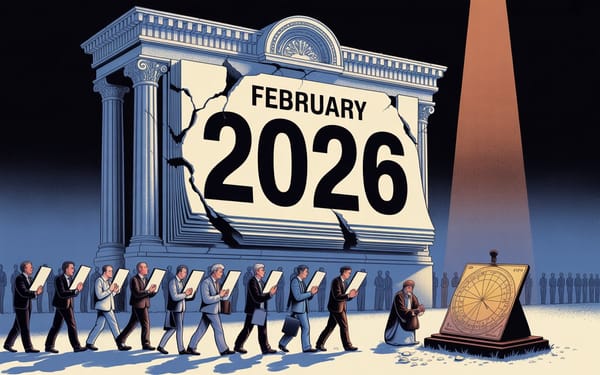
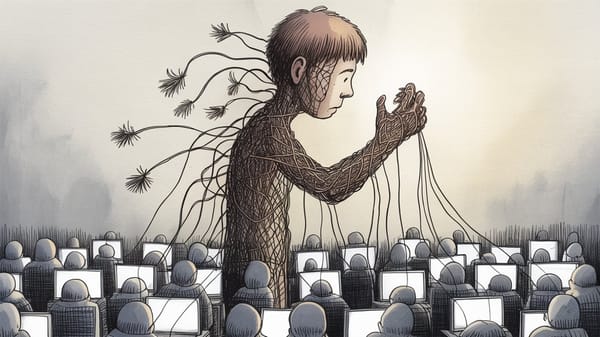

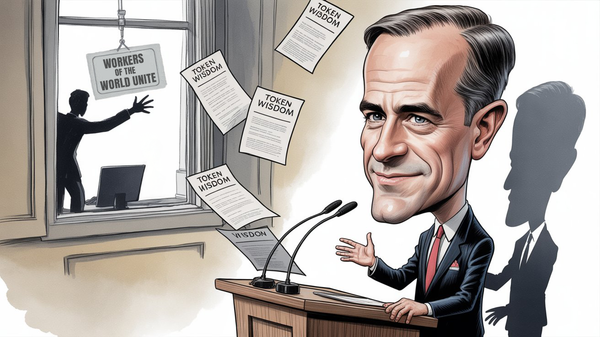
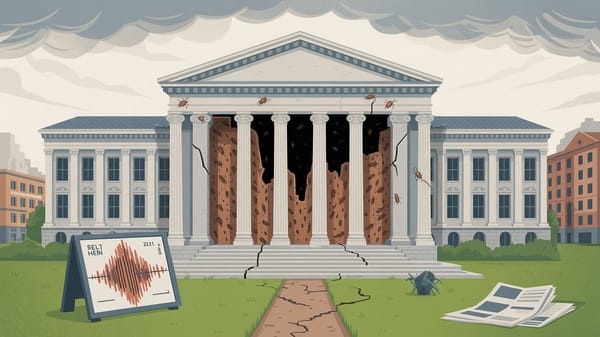
Member discussion